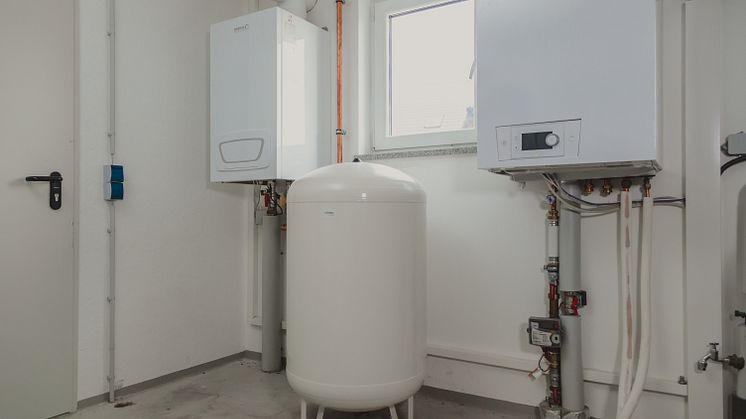
News -
Hybrid Heating Systems: EWI Study Shows Potential for Heat Transition
A recent study by the Institute of Energy Economics at the University of Cologne (EWI) shows: Gas hybrid heating systems can be an economically viable and practical alternative to pure heat pumps, particularly in neighborhoods with many unrenovated buildings. Although they cause slightly higher greenhouse gas emissions, their flexible mode of operation - especially during peak load phases - relieves the electricity grid and can therefore reduce grid expansion costs. Hybrid heating systems can therefore not only serve as a bridging technology, but also make an important contribution to implementing the 65% renewables target.
The German Building Energy Act (GEG) stipulates that newly installed heating systems must use at least 65% renewable energy in future. This requirement has already applied to new buildings in new development areas since 2024. In existing buildings, the regulation comes into effect if a municipal heating plan is in place - in large cities, this should be the case from mid-2026, in smaller municipalities from mid-2028 at the latest. Various technological solutions are available to achieve the 65% target. In addition to purely electric heat pumps, these also include hybrid heating systems. They combine a heat pump with a gas condensing boiler and thus enable flexible operation.
The current funding policy focuses almost exclusively on purely electric heat pumps - funding that is open to all technologies and also takes hybrid heating systems into account could accelerate the heating transition and make it more socially acceptable, especially where the expansion of the electricity grid is reaching its limits.
The EWI study systematically compares the long-term heating costs and greenhouse gas emissions of different heating technologies and examines how future electricity and gas grid charges will affect their economic viability. Four typical building configurations were examined: Single-family and multi-family houses, each in unrenovated and renovated condition. The study was carried out as part of the EWI's heat transition funding initiative.
